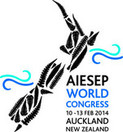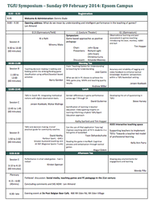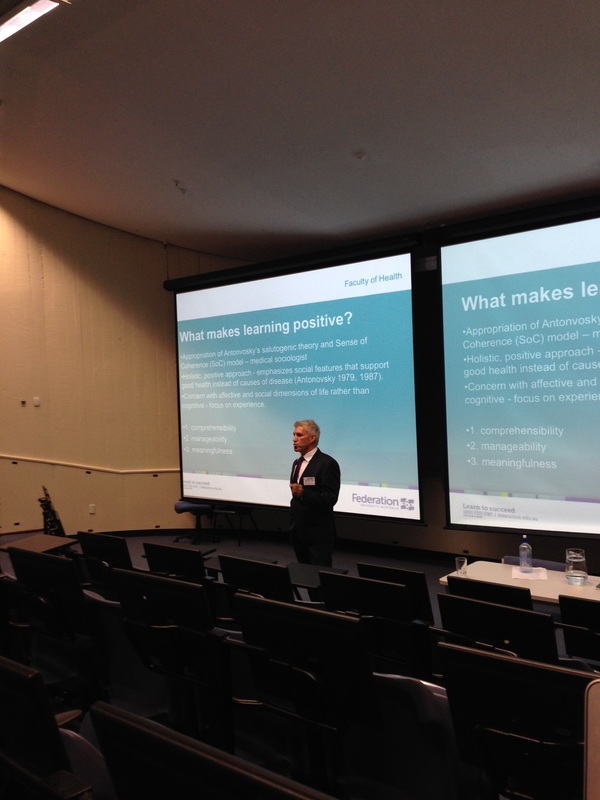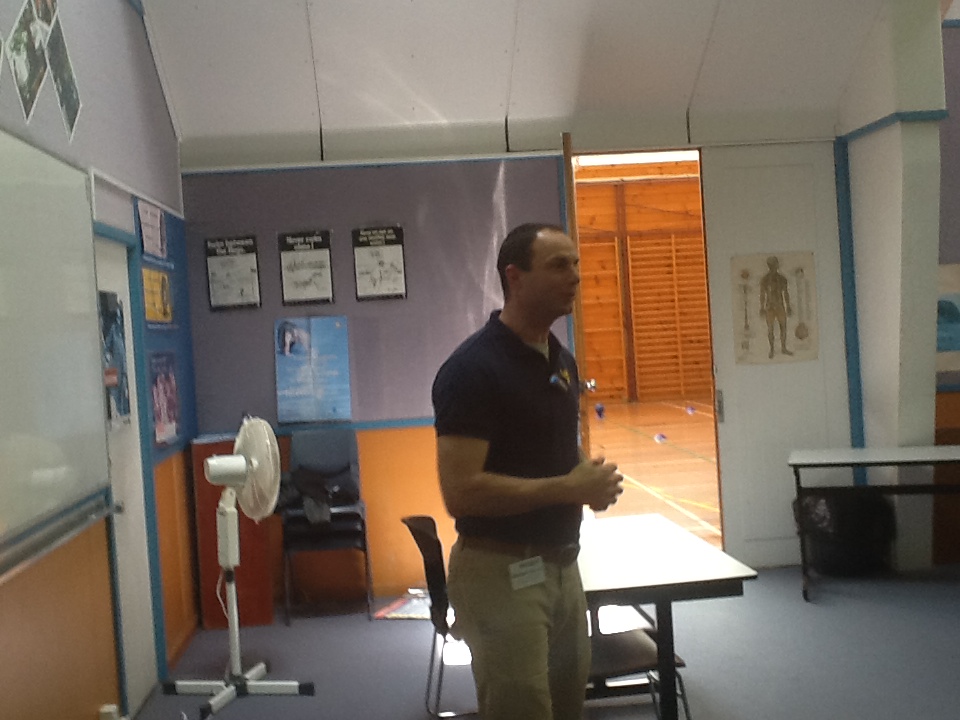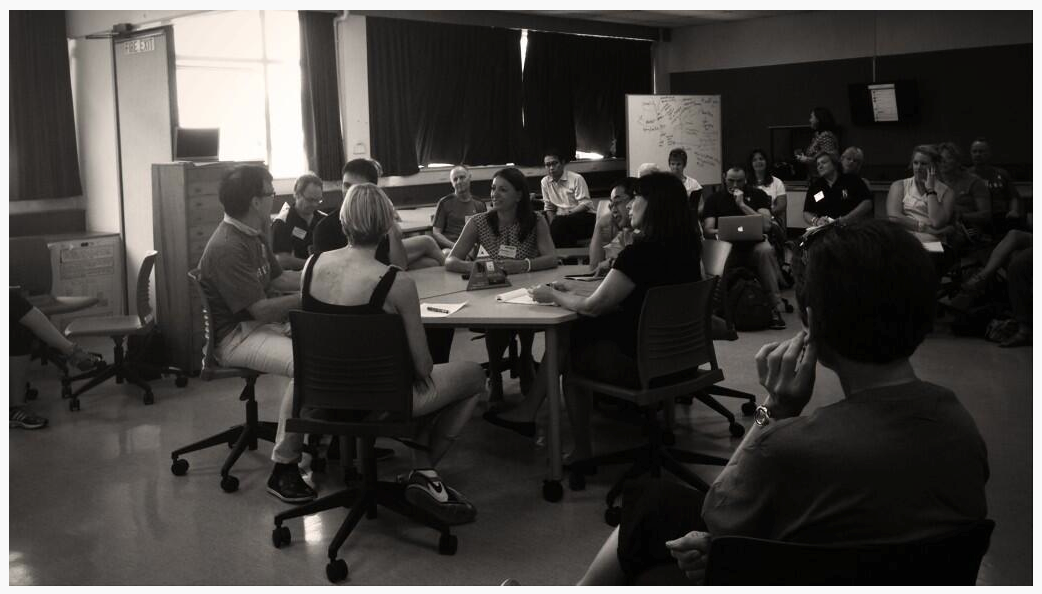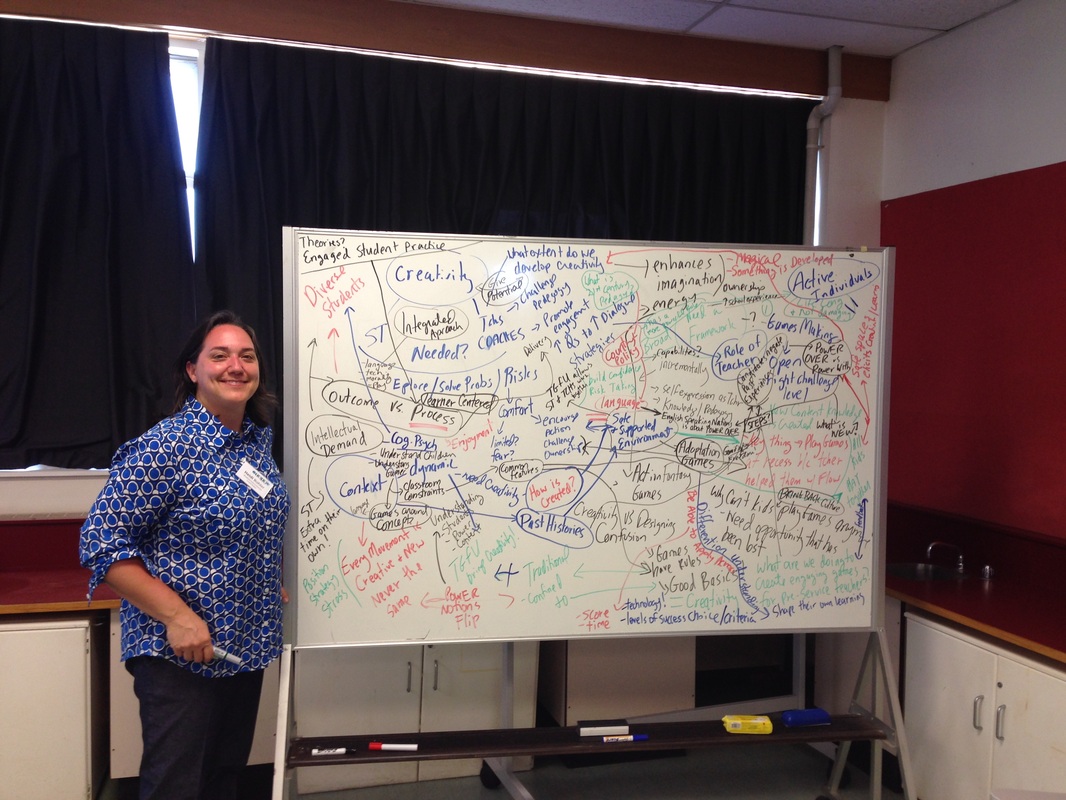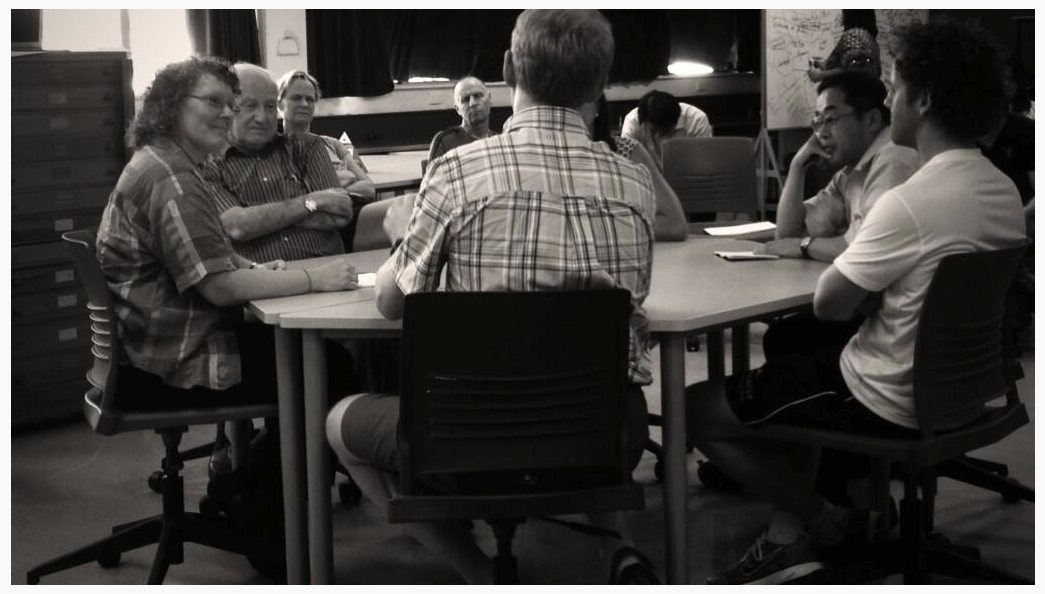IntroductionA one-day TGfU symposium was held at the University of Auckland Faculty of Education Epsom campus on Sunday 9th February 2014. Around 90 participants were registered and participants were academics, sports coaches and teachers. Throughout the day, the relationship of theory and practice (praxis) was evident. Delegates were engaged in theory and practical sessions, or sessions that infused the two. The symposium concluded with an innovative fishbowl discussion that was streamed ‘live’ via YouTube/Google and integrated to a Twitter feed so that people around the world interested in games-based approaches could also participate. We thank the University of Auckland for organizing the day and, in particular staff from there including Dr. Alan Ovens, Wayne Smith, Rod Philpot as well as Dennis Slade from Massey University Palmerston North. We also thank participants and presenters for their hard work and dedication to the day. Written by Stephen Harvey |
Game based approaches as positive pedagogyPresenters: Richard Light, John Evans, Christina Curry Professor Richard Light and his colleagues (Christina Curry and John Evans) conducted a one-hour symposium on Positive Pedagogy. Drawing on the work of Antonvosky’s (1979) Sense of Coherence (SoC) model Csikszentmihalyi (1999) on flow, Light set the scene for Curry and Evans by highlighting the positive effects games-based approaches (GBAs) have on learners, be they adult or children. Light suggested strong links of GBAs to the concepts of Antonvosky’s model, those of comprehensibility, manageability and meaningfulness. Curry followed Light’s lead in providing empirical evidence in her work with primary-aged pupils that GBAs can indeed offer pupils a send of flow Csikszentmihalyi (1999), and this a positive affective experiences due to the supportive social-moral environment they encourage. Evans, meanwhile, put forward data on the use of positive pedagogies by rugby union coaches, noting that New Zealand coaches in particular used conditioned games and effective questioning to provide a positive learning environment to players in elite coaching settings. Written by Stephen Harvey |
Developing the art of questioning in TGfUPresenter: Stephen Harvey Harvey’s session focused on the forgotten art of questioning. After providing an overview of the key tenets of game-based approaches from Light (2013), Harvey engaged the participants in a practical session where some participants played a modified handball game while ‘observers’ began to analyse the game in order to formulate a list of potential questions for use in ‘freeze replay’ situations. Taking a break from the game, Harvey used an adapted version of Butler’s (1997) questioning framework which drew on Bloom’s taxonomy to allow participants formulate questions and consider developing ones that were not simply ‘lower order’ (i.e. knowledge/recall questions) to begin to think about questions that focused on ‘higher order’ (i.e. application and synthesis questions) problem solving and the identification of multiple solutions the game presented. These were then tested during a further section of game play observation. Recognizing that one of the features of GBAs is reflection, dialogue and debate, and that questions should offer opportunities for as ‘reflective toss’ (van Zee and Mistrell, 1997; Forrest, 2014), Harvey presented the Gallwey’s (1974) GROW model (Goal, Reality, Obstacles/Opportunities, and Way forward), suggesting also that questions should be solution focused rather that problem focused (Clarke & Dembkowski, 2006). During a final section of game play, participants observed game play which was followed by a ‘debate-of-ideas’ (Grehaigne et al., 2005) structured around the GROW framework. This session offered by Harvey, an academic who remains an active sports coach was a perfect demonstration of the links between theory and practice and clearly articulated the benefits of questioning in developing game performance through scaffolding and embodied understanding. Delegates were able to take away practical and theoretical examples of questioning and how to formulate questions within their settings that challenged learners in games. |
Accuracy and reliability of tagging and video feedback to enhance tactical knowledge: Student’s perspective within a TGfU Basketball Setting Presenters: Jeroen Koekoek and Wytse Walinga Jeroen Koekoek and Wytse Walinga’s presented a practical session underpinned with their research into the accuracy and reliability of tagging and video feedback to enhance tactical knowledge. Their research acknowledged the work of Dyson (2005) and McBide and Xiang (2004), recognizing that teachers are being challenged to capture children’s understandings of decision-making and problem solving within the learning of games. Their research focused on the role learner-regulated video feedback can play in tactical learning within PE lessons, utilizing notional analysis in combination with a digital tool (i.e. tag panels on a tablet) for video feedback, as a method for establishing children’s perceptions within a TGfU Basketball setting. During the workshop, delegates were engaged in a practical Korfball session using the digital/tagging tool to observe and tag performance then provide feedback. This session was an excellent marriage of theory and practice, where delegates appreciated the practical demonstration of the exploratory phase and digital intervention. Written by Kelly Ann Parry |
TGfU symposium 'Fishbowl' discussion forum Tim Hopper, Heidi Bohler and Kelly Parry concluded the TGfU symposium with a ‘Fishbowl’ discussion forum where they engaged delegates and TGfU SIG members from around the world in a discussion on PE pedagogy and the role of teaching games. Invited panellists including Christina Curry, Wendy Piltz, Deborah Sheehy, Yoshinori Okade initiated discussion around topics: can adopting a TGFU approach enhance creativity among pupils/athletes but also teachers/coaches, the impact of sustainability, linking complexity theory to TGFU, the craft of the teacher, knowledge of understanding of games among PETE/teachers and coaches and the impact of sustainability of a TGFU community of practice. Panellists were invited to speak for 90 seconds with audience members joining the ‘fishbowl’ to offer a rebuttal. The discussion forum was broadcasted live and tweets from @TGfUinfo Twitter followers’ were interjected into the discussion. Some interesting discussion questions were raised around what are we doing to create engaging games? Have we learnt anything from video games that can support us? and is TGfU the same now as it was in the 80's when TGfU was introduced? Len Almond asked whether Physical Education has a future, suggesting it is in the hands of Physical Educators to decide. Written by Kelly Ann Parry |

